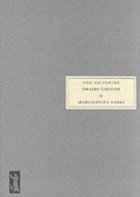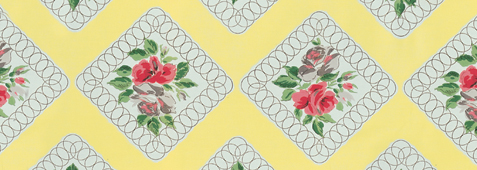‘The Victorian Chaise-Longue’ by Marghanita Laski
 Although I’ve only read one book published by Persephone before now (the delightful Miss Pettigrew Lives for a Day by Winifred Watson) this, combined with the numerous reviews I’ve read for books from this publisher on other blogs, has been sufficient to create a preconception in my mind of what a Persephone book will typically be like. I expect them to be sweet, charming and domestic in focus with a lively wit and intelligence. So when I needed relief from the postmodern meanderings of Paul Auster (which are undoubtedly very clever but, frankly, made my brain hurt more than a little) I turned to my newest Persephone acquisition which I had fortuitously discovered on the shelves of Oxfam that very day. However, these ideas I had have been checked already at only my second Persephone book, The Victorian Chaise-Longue by Marganita Laski. Laski’s book may have the expected domestic setting and it is definitely clever, but goodness me it’s dark! What I expected to be a cosy, pleasant read turned out to be a little slice of nightmare, but for all it flouted my expectations it as nevertheless a stunning book.
Although I’ve only read one book published by Persephone before now (the delightful Miss Pettigrew Lives for a Day by Winifred Watson) this, combined with the numerous reviews I’ve read for books from this publisher on other blogs, has been sufficient to create a preconception in my mind of what a Persephone book will typically be like. I expect them to be sweet, charming and domestic in focus with a lively wit and intelligence. So when I needed relief from the postmodern meanderings of Paul Auster (which are undoubtedly very clever but, frankly, made my brain hurt more than a little) I turned to my newest Persephone acquisition which I had fortuitously discovered on the shelves of Oxfam that very day. However, these ideas I had have been checked already at only my second Persephone book, The Victorian Chaise-Longue by Marganita Laski. Laski’s book may have the expected domestic setting and it is definitely clever, but goodness me it’s dark! What I expected to be a cosy, pleasant read turned out to be a little slice of nightmare, but for all it flouted my expectations it as nevertheless a stunning book.
First, the reader is introduced to Melanie, a 1950′s wife and mother who has been confined to her bed since the birth of her child as she was taken ill with tuberculosis and has consequently been unable to see her child in case the excitement is too much for her weakened constitution. As the novella starts, the doctor decides that Melanie is well enough to spend the afternoon in a different room to give her a change of scenery and she is carried to the Victorian chaise-longue of the title, a peculiarly compelling item of furniture which Melanie purchased in an antique shop whilst shopping in search of a crib for her coming baby. There, she falls asleep, but on waking Melanie finds herself no longer in the 1950′s but back in 1864 and so the nightmare begins.
I thought that Melanie (or Milly as she is known in 1864) was a very interesting character. When the reader sees her in the 1950′s she comes across as docile and rather vacuous, relying on her husband, the nurse and the doctor without any particular opinions or influence of her own, but there is still the feeling that there is something behind her perfect housewife exterior, an intelligence which she keeps hidden for some reason. Ironically, it is only when she is transported back to 1864 that this is revealed: in the modern setting the reader is kept out of Melanie’s head, wheareas all of the Victorian section is shown entirely through her thoughts and reactions. She starts to express her thoughts and try to act only at the time when she is most helpless and she no longer has other people around her to act as props. The nightmare experience of finding herself in an alien time period is the catalyst which forces her to become independent and so in a peculiar way the reader watches her becoming free even as she is trapped.
The most thought provoking aspect of this book is its ambiguity; as I’ve observed, the reader only experiences the time travel through Melanie’s mind and so it is impossible to say what exactly is going on. Is she dreaming? Is she mad? Has she really travelled in time? She retains her modern sensibilities and is aware of herself as Melanie, not Milly, but also has some of Milly’s memories, so who is she really? Has she regressed to a past life? Can she get back or is she trapped? If she dies in the past, what happens to her in the present? The reader is just as confused and disoriented by this sudden, unpredicted change in the direction of the narrative as Melanie is and so is drawn into her panic and horror.
I found this book very effective and I’m very grateful to Persephone for introducing me to a wonderful new author, even if this wasn’t the book that I was expecting at all.
The Victorian Chaise-Longue by Marghanita Laski. Published by Persephone, 1999, pp. 101. Originally published in 1953.
6 Responses to “‘The Victorian Chaise-Longue’ by Marghanita Laski”
Comment from FleurFisher
Time April 1, 2011 at 1:11 am
Thank you for a lovely reminder of a unique little book. Marghanita Laski is indeed wonderful, and every book of hers that I have read so far is entirely different.
Comment from oldenglishrose
Time April 1, 2011 at 2:33 pm
I’m not sure why that’s the impression that I have, but I do; I think I must have been blinded by the quaint shop and pretty fabrics. Anyway, I’m definitely looking forward to seeing what further surprises the rest of the list will bring.
Comment from oldenglishrose
Time April 1, 2011 at 2:34 pm
That’s good to know, as I have ‘Little Boy Lost’ sat on my shelf waiting to be read.
Comment from Simon T
Time April 2, 2011 at 3:22 pm
Great review! I thought this was a great little book, although I never found it scary, which most seemed to. Certainly a little outside the Persephone cosy-canon, as it were.
Comment from oldenglishrose
Time April 6, 2011 at 10:49 pm
Thank you. I ended up writing the review quite a long time after I had finished it, so evidently it’s one of those books that sticks with you. I’m looking forward to reading some of her other books now.

Comment from Helen
Time March 30, 2011 at 8:39 pm
I’ve read five Persephones so far and Miss Pettigrew was the only one I would describe as charming and cosy, so there is a lot of diversity in the types of books they publish. I’m glad you liked this one – I enjoyed it too, and for such a short book it gave me a lot to think about.